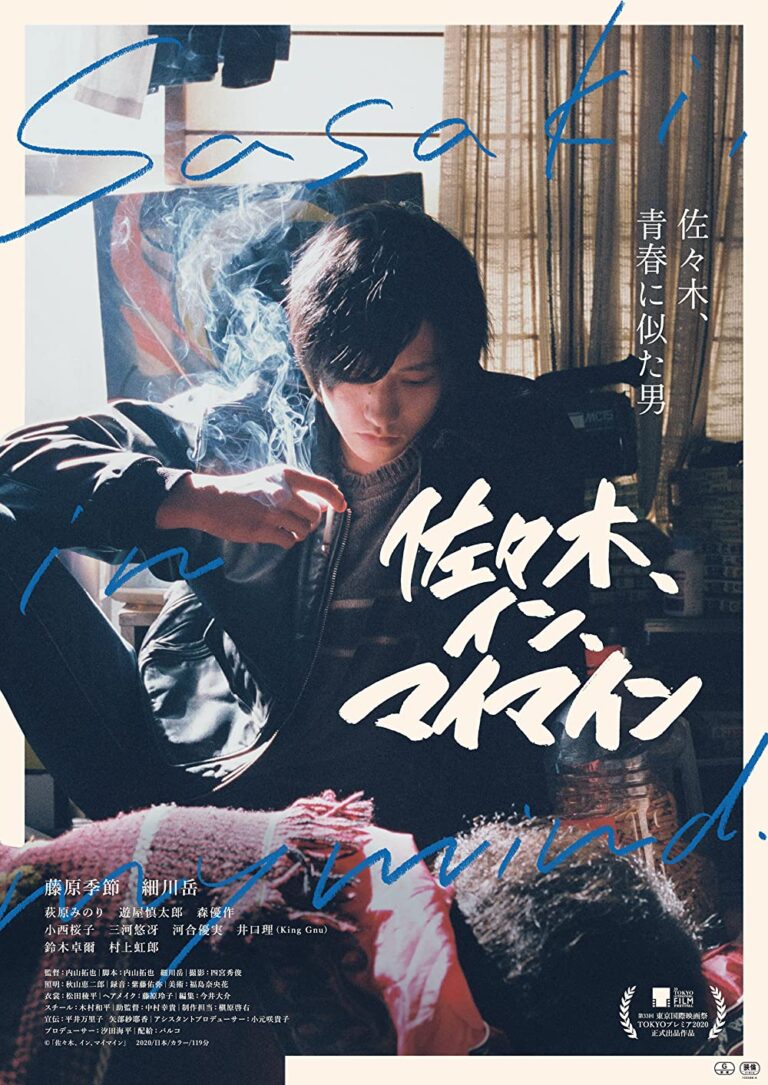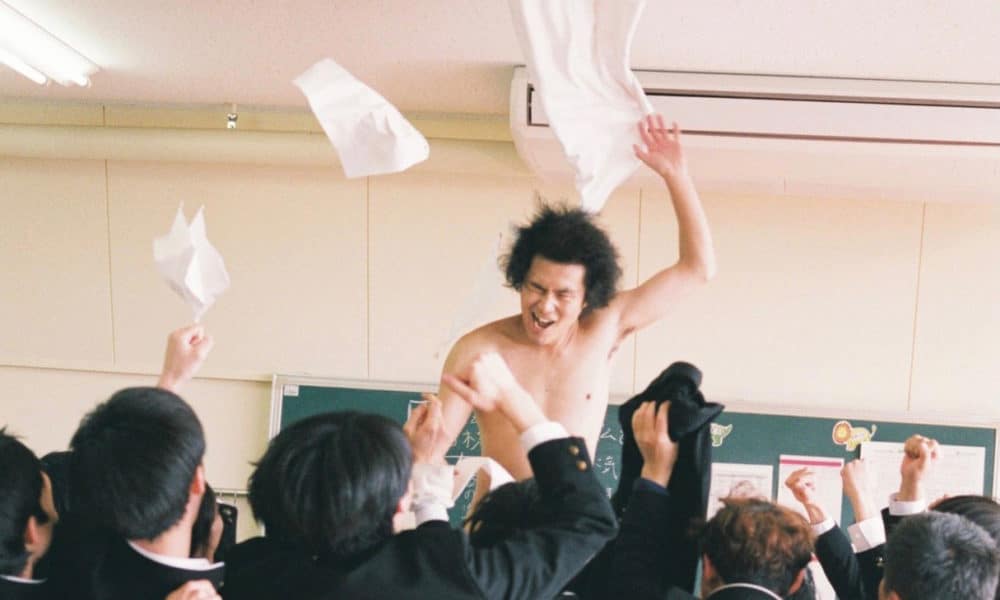
The intricacies of consciousness, as it wanders through time and space restlessly jumping back and forth from present to the past, is lyrically represented by the Japanese film Sasaki In My Mind.
Director Takuya Uchiyama craftily leads us back to a time when all our aspirations were possible, when the blank slate of the future still had to be inscribed. That place is a state of mind. It is not fixed by the tyranny of time, because it is always available to us when our intellect travels back to those remembrances. This is the exact sensation captured by the film.
The storytelling follows the stream of consciousness of would-be actor Yuji Ishi (Kisetsu Fujiwara), who looks back at his youthful days and his larger-than-life classmate Sasaki. He represented a hero-like figure, who possessed a flamboyant and bombastic zest for life that was contagious and awe-inspiring. Sasaki used to be fearless, charismatic, and would attract everyone in his orbit.

The film was an official selection of the 33rd Tokyo International Film Festival and was received passionately by moviegoers. Sasaki In My Mind gathered multiple accolades and filmmaker Takuya Uchiyama was selected among “100 People Who Will Change Japan In 2021.” This marks Uchiyama’s second full length feature film after his award-winning movie Vanitas. The film also attests how art often blends with personal experience since Gaku Hosokawa — co-writer and the actor who plays Sasaki — was inspired by the memory of a school friend to create this story. He brought the idea to Uchiyama and they worked on the script together for over a year.
The narrative mode — that recalls the great works of fiction of Marcel Proust, Virginia Woolf and James Joyce — is told partly in flashback as each memory unfolds a human emotion of the protagonist. This encapsulates the power of the mind, and how each moment of reminiscence is just as real and impactful as an action occurring in the past, because our subjectivity is what gives unity to our identity. The title itself alludes to the possibility that what unfolds is Yuji’s version of Sasaki: he can use that memory to tell the tale over and over again as he likes, to keep the story alive.

Yuji’s friendships, romantic entanglements, professional impasses, are all affected by his interconnectedness with the world, and the contrast between expectations and reality. The disparity between these two spheres leads to a feeling of discontent and frustration, as we see an older Yuji experiencing a break-up, a career rut, and lingering in pachinko parlours and karaoke joints. Instead of channeling his efforts to turn his life around, memory becomes his narcotic. As he recollects those unrepeatable moments, Yuji is slowly reminded of his potential through the moments he shared with his peers.
Uchiyama’s combination of camera angles, paired with the cast’s exceptional acting and evocative cinematography and music, enriches the way Yuji’s mental process makes sense of the fluctuation of his ideas. This filmic journey through the psyche leads to a final climax drenched with surrealism that glorifies the folly of life and incites viewers to seize the day.
Final Grade: B+

